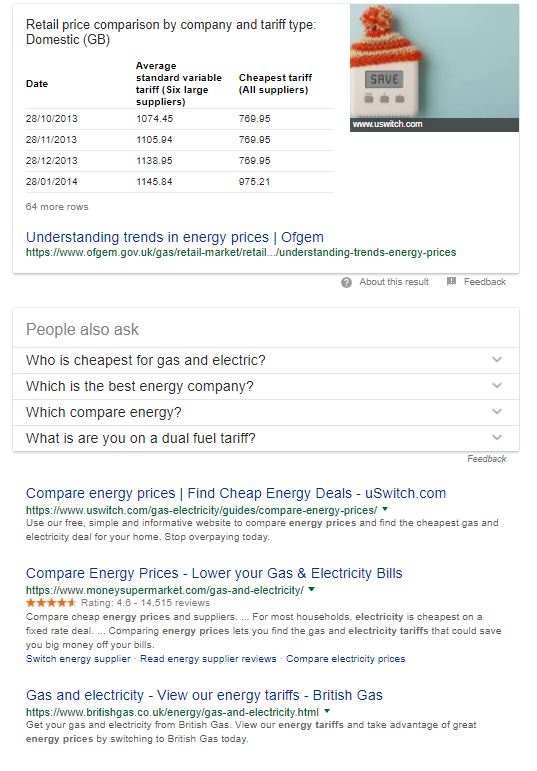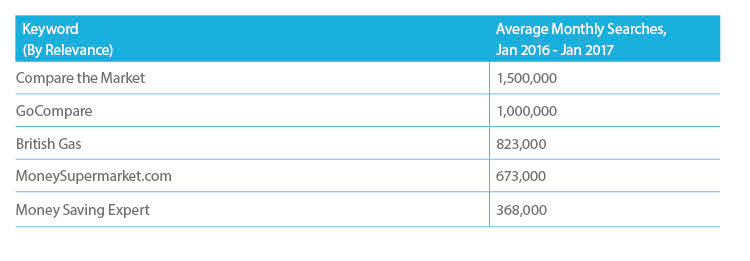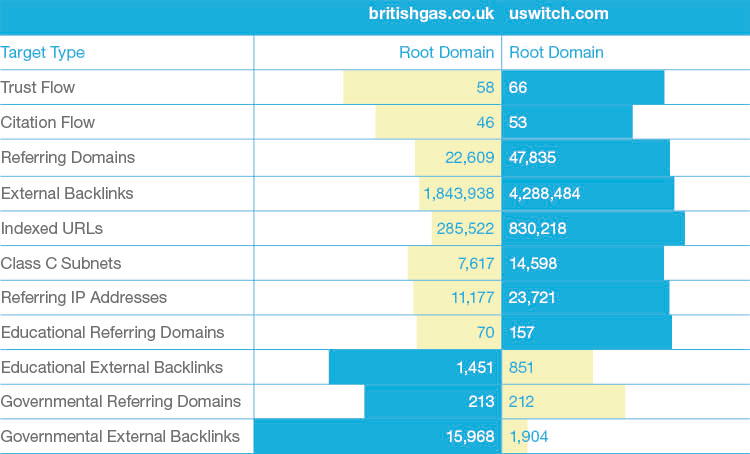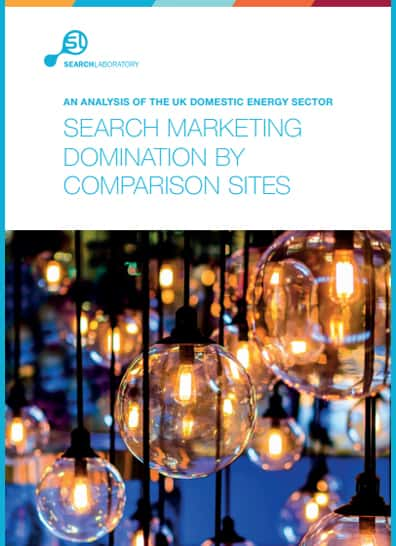Comparison sites have invested heavily in digital marketing and succeeded in becoming very visible in recent years. They now have a dominant presence in many sectors, including finance, telecoms, insurance and travel.
We undertook some in-depth research to get a detailed understanding of the techniques that have proved most successful for comparison sites, using the UK domestic energy sector as a case study.
We identified three key factors behind their dominance.
1. They are really good at satisfying the intent of high volume searches
Comparison sites succeed because they have the sole aim of returning a set of results that satisfies the intent of high volume searches. One of the biggest volume (non-brand) terms in the energy sector, for example, is ‘energy comparison’.
When a user searches for ‘energy comparison’, they don’t want to compare products from a single supplier – they want to compare across the whole market.
Comparison sites, by design, are perfectly positioned to meet this intent. So it’s unsurprising that every single result on the first page of Google is a comparison site. A search term where the intent is less clear is ‘energy prices’.
From this phrase, we know that the searcher wants to see prices but they haven’t requested any sort of comparison in the query. When the searcher’s intent isn’t completely clear, Google will normally return a mixture of results so that there are at least some relevant results for each user making this search.

Screenshot taken October 2017
This is what we see in this result, although interestingly, two of the three top positions are still occupied by comparison sites, suggesting they do the best job of satisfying the searcher’s intent.
Because comparison sites do such a good job of satisfying the user intent across many terms in the energy industry, Google will reward them with a strong presence in the search results.
2. They have invested in campaigns to build brand awareness and trust
Leading comparison sites have invested heavily in offline campaigns to build brand awareness and establish trust in their target markets. The monthly brand search volume for two of the best-known sites shows how big they have become.
Brand search volumes
 Source: Google Keyword Planner
Source: Google Keyword Planner
Based on search volume alone, Compare the Market is nearly twice as big as British Gas, which is by far the biggest energy supplier as far as search volume goes.
3. They have built high quality backlink profiles over time
These brands have also invested in building powerful external link profiles.
The following table illustrates how British Gas – the most searched for UK energy supplier with over 200 years of history and brand awareness – has been out-linked by uSwitch, a comparison site which was founded relatively recently in 2000.
Backlinks: British Gas vs. uSwitch

Source: Majestic SEO
Summary
Comparison sites have come to dominate because:
1. In a lot of energy SERPs, they do a great job of satisfying the user’s intent
2. They are strong brands with a lot of search demand and Google wants to recognise and
reward that
3. They have very powerful external link profiles powering their rankings.
What can suppliers do in response?
We have published the results of our research in an in-depth report on the domination of search traffic by comparison sites in the UK energy sector, together with recommendations for how suppliers can respond and protect their brands.
The report will be of interest to marketers in any sector where the comparison sites dominate the SERPs.
Download the full report



